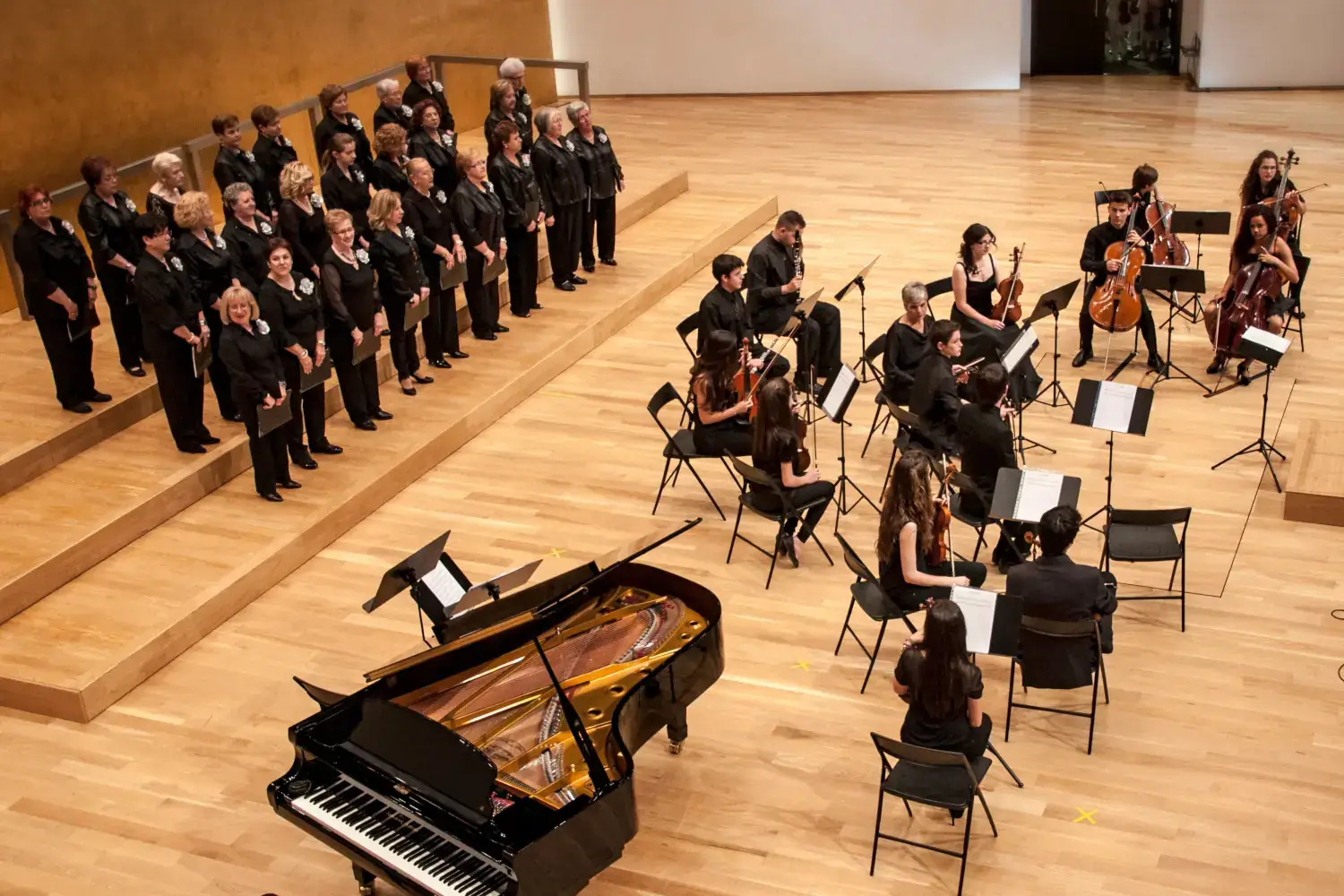by Holger Slowik (06.11.2020)
Translation by Edd Lee (21.11.2022)
How can large-scale choral masterpieces be performed by smaller choirs? This question has not only arisen from the corona pandemic, there have always been many reasons, including financial, to reduce the forces. Carus-Verlag regularly expands its series of choral works with reduced orchestrations with new, exciting releases. So the Stretta Journal team chose to take a closer look at these editions and present some of them in detail.

The idea of the untouchable musical masterpiece only developed through the 19th century. Until then, it was normal to re-arrange works and adapt them to the circumstances of the respective performances. Carus-Verlag has adopted this pragmatic approach and offers a number of famous choral works arranged for reduced orchestral forces. Not only can large-scale works be realised for smaller choirs, and at lower costs, but the new versions also honour these well-known works with a refreshing new sound.
The extent of intervention to the original scores ranges from slightly reduced numbers of wind instruments in Joseph Haydn's Creation to chamber music formats, as in Johannes Brahms' Song of Destiny and A German Requiem and Antonín Dvořák's Stabat Mater, to quite substantial revisions: While Anton Bruckner's Te Deum with brass quintet and organ still gives an idea of the impact of the original version, Dvořák's Mass in D with woodwind quintet offers a much lighter, chamber music sound.
Farthest from the original is the imaginative arrangement of Giuseppe Verdi's Messa da Requiem for just five musicians, horn, double bass, piano, marimba and timpani. But of course, the hugely iconic ’Beats of Faith' on the bass drum are not missing in this version either.
Lesser known and more obscure works are also available in reduced arrangements, and may well find their way into the repertoire, for example: Gioachino Rossini's Stabat Mater, Charles Gounod's Requiem and Giacomo Puccini's Messa di Gloria.
Ludwig van Beethoven's Missa Solemnis is one of the flagship works of the genre and places the highest demands on all performers. The version by Joachim Linckelmannr reduces the 18 wind instruments originally intended by Beethoven to just seven, which in turn, makes it possible to reduce the number of strings and the choral forces. Even with this streamline instrumentation, the Missa Solemnis loses none of its symphonic dimensions and power.
Felix Mendelssohn Bartholdy's Psalm 42 ‘Like as the Hart’, one of the most popular psalm settings of the Romantic era, was arranged by Jan-Benjamin Homolka. He also halved the number of wind instruments and, with the exception of the horn, dispensed of the brass altogether. Where the choir loses the support of the trombones, the overall sound gains clarity and focus. All the woodwind colours however, that are so important for the romantic sound, remain largely untouched.
Saint-Saëns’ vocal music is not widely known outside France. His Messe de Requiem is so opulently orchestrated, quadruple woodwind and four harps, that it is rarely performed. For this reason, the original edition by Carus-Verlag also includes the option to perform with reduced wind instruments. Klaus Rothaupt, however, now presents a radically different version, which still retains the very 'French' sound, an arrangement for string orchestra with harp and organ.
The piano reductions and choral scores, and in some cases also the string parts, of the original versions can also be used for all new arrangements. You can find audio excerpts and sample scores for all these works in the Stretta shop.
In this table from Carus Music you can find an overview of all the published arrangements, compared to their original scoring: Original versions and their arrangements
And here, you can find a list of all of the new arrangements that have been published so far – sorted by genre:
There is a separate Stretta website for the country Worldwide. If your order is to be delivered to this country, you can switch, so that delivery times and shipping conditions are displayed correctly. Your shopping cart and your customer account will remain the same.